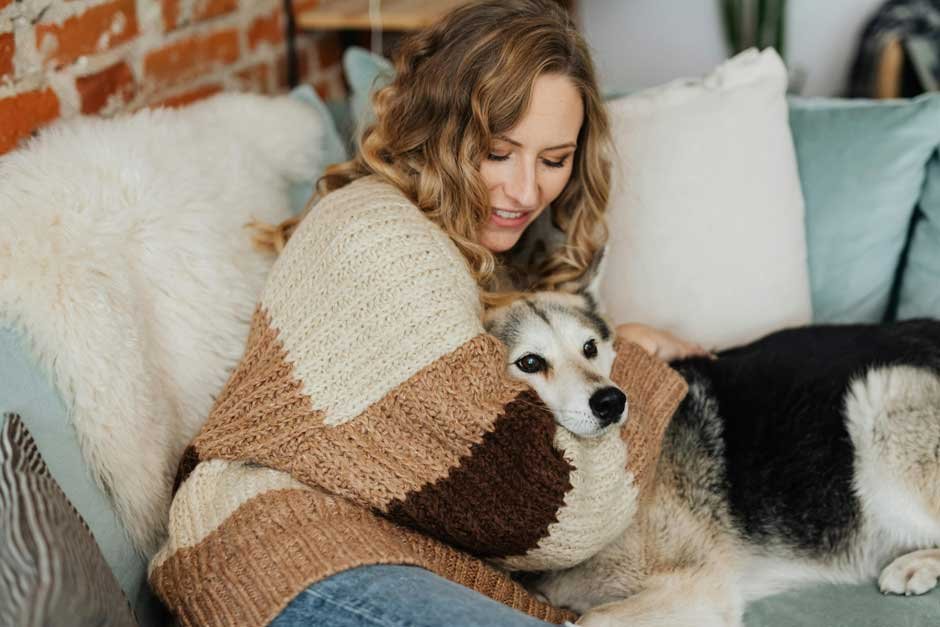Dogs seem to crave connection with their owners, as well as safety and a deep sense of belonging. When those core needs are met, anxious behaviors and destructive habits often give way to calm, joyful companionship. While dogs can’t express their feelings in words, their entire demeanor reflects the love and security they experience each day. Building that bond doesn’t require special training or elaborate gestures—just consistent care, thoughtful attention, and a genuine focus on what brings happiness to your dog.
Here are a few simple ways to ensure your dog feels truly loved and secure.
Earning Trust Through Predictability
Dogs thrive on steady routines, finding incredible comfort in predictability. That happy bouncing you see when you pick up their leash shows how they appreciate knowing what’s next. You should create consistent feeding schedules, regular dog walks, fun play sessions, and evening rest times. Though your furry friend has no awareness of time, they still know how their day will play out; they sense these things. When schedules remain predictable, apprehension and stress start to diminish.
Training builds trust when done with patience and positive reinforcement. Harsh corrections or inconsistent expectations confuse dogs, creating anxiety rather than security. Clear boundaries actually comfort dogs—they understand their place in your “pack” and what behaviors earn approval. Short, upbeat training sessions using treats and praise build confidence along with skills. Your dog learns you’re reliable, fair, and worth listening to. Speak to your dog with consistent cues and commands. The confusion on their face when you use seven different phrases for “come here” isn’t just comical—it’s revealing. Dogs learn your language through repetition. Pick simple, distinct words for important commands and stick with them. This verbal consistency creates a communication bridge, helping your dog understand and predict your expectations.
The Power of Touch and Presence
Physical contact ranks among your dog’s primary love languages. Those lean-ins during petting sessions aren’t coincidental—they’re actively seeking connection. Learn where your particular dog enjoys being touched. Some melt during ear rubs, while others prefer chest scratches. Watch for relaxed body language that says “more please” versus tense signals requesting space. Quality petting provides comfort that no fancy toy can replace. Playtime builds bonds that last. Fetch, tug-of-war, or simply running together fulfill your dog’s need for joyful interaction. These games aren’t just physical exercise—they’re emotional investment. Notice which activities light up your particular dog. Some live for retrieving games while others prefer gentle wrestling or nose work. Tailoring play to their preferences shows that you see and value their unique personality.
Quality time doesn’t always mean active engagement. Your presence alone provides security for pack-oriented animals. Working from home with your dog sleeping nearby meets deep emotional needs. When separation becomes necessary, leaving recently worn clothing with your scent helps bridge the gap. Your smell provides comfort, telling your dog you’ll return even when temporarily absent.
Proper Grooming Builds Health and Happiness
Grooming goes far beyond cosmetic benefits—regular maintenance prevents painful conditions while strengthening bonds. Matted fur pulls constantly on skin, creating hidden sores. Overgrown nails force dogs to alter their natural gait, causing joint strain. Professional services like specialized dog grooming in Asheville and various other areas, offer expertise that catches issues many owners miss, from early skin conditions to suspicious growths requiring veterinary attention. Between professional sessions, home brushing removes debris while distributing natural oils for healthier coats. The gentle handling during these grooming sessions teaches nervous dogs that human touch brings comfort, not threat. This physical care routine transforms a basic maintenance task into a trust-building activity that enhances security and well-being simultaneously.
Honoring Their Unique Personality
Dogs have surprisingly distinct personalities that deserve recognition. Some bounce with extroverted energy while others prefer quiet observation. Forcing a naturally shy dog into chaotic dog parks creates stress, not joy. Likewise, leaving a highly social breed alone for ten hours daily courts disaster. Watch who your particular dog truly is, not who you wish they were. Accepting their authentic nature builds security that no amount of training can create.
Communication styles differ dramatically between dogs. Some “talk” constantly through grumbles, play-growls, and varied barks. Others communicate almost entirely through subtle body language. Learning your individual dog’s communication style prevents misunderstandings. That grumble during play might sound aggressive to the uninitiated ear but actually signals engagement for vocal breeds. Tuning into these nuances helps your dog feel genuinely understood.
Conclusion
Building a secure relationship with your dog requires attentiveness, consistency, and genuine care. Your dog may never fully understand all your words, but they unfailingly comprehend the language of love expressed through your daily actions.






